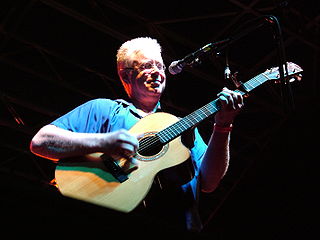A Quote by Daniel Clowes
Something I always wanted to do, to capture that later half of the '70s. It's like the early half of the '70s is still the '60s, in that there's still kind of a playfulness and inventiveness in terms of design and the things that were going on in the culture. The second half, it got much more commodified. It's possibly the ugliest era of architecture and clothes and design in the entire 20th century, from 1975 to '81 or '82.
Related Quotes
The 60s were a continuation of the 50s much more than people realized. Certainly in some countries, like Britain, there was still a culture of deference, whereas in the 70s we really are in a time of angry transition. The generation that came into young adulthood in the 70s couldn't find jobs; that wasn't true in my generation. They entered a time when two depressing things hit them both at the same time.
D-Day represents the greatest achievement of the american people and system in the 20th century. It was the pivot point of the 20th century. It was the day on which the decision was made as to who was going to rule in this world in the second half of the 20th century. Is it going to be Nazism, is it going to be communism, or are the democracies going to prevail?
I was really interested in 20th century communalism and alternative communities, the boom of communes in the 60s and 70s. That led me back to the 19th century. I was shocked to find what I would describe as far more utopian ideas in the 19th century than in the 20th century. Not only were the ideas so extreme, but surprising people were adopting them.
When I began writing poems, it was in the late 60s and early 70s when the literary and cultural atmosphere was very much affected by what was going on in the world, which was, in succession, the civil rights movement, the antiwar movement, and the women's movement in the 60s, 70s, and into the early 80s. And all of those things affected me and affected my thinking, particularly the Vietnam War.
I like the fact that they still run substantive pieces. I'm not sure I like the pieces, but it's nice that they do that. Anyway, it was always sort of ridiculous, me having anything to do with the youth culture, but now that I'm in my 50s, it's extra-double-ridiculous. They were losing interest in me, and I was losing interest in them. When I went to renegotiate my contract at Rolling Stone, I kind of halfheartedly asked if I could do half the work for half the money, and they asked if I could do two-thirds of the work for half the money. I ran that by my agent, since he can do math.
Some people grew up in the '70s, powerful, beautiful memories of the '70s which to me is one of the worst decades. It has something to do with that. Has something to with the birth of rock 'n' roll, and something to do with those American cars. an incredible design. There was so much optimism at that time and it must leak into the process.







































